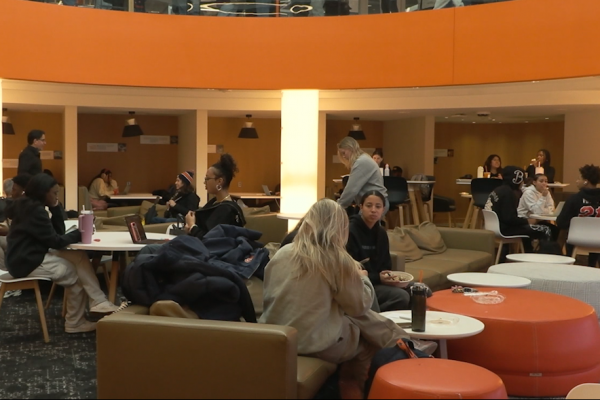SYRACUSE, N.Y. (NCC News) – When was the last time a conversation sparked up between you and a friend about religion? While it can be a taboo topic, especially in a country like the United States where people from all walks of life have come to settle down, the way to break misconceptions surrounding every religion is to talk.
Mind-blowing, isn’t it?
What’s surprising to the young generation of Muslim-Americans is the absence of knowledge.
“If you do not know something, you do not worry about,” is the meaning of the popular phrase “Ignorance is bliss.” This could be right depending on the lens with which it’s being viewed, but it’s rather incomplete. If you do not know something, and it is of significance to society, should you not educate yourself on it for the betterment of the community?
The chaplain of the Syracuse Muslim student life center, Amir Duric, has been in his position for over four years. Though he has seen major growth in the Muslim community in his time in Central New York, Duric believes a long journey is ahead if Muslims want to rise to prominence in America. One way he’s been attacking the issue is by gathering people from different religions under one roof and letting them discuss the similarities and differences between the religions.
“We had 50% Muslims and 50% non-Muslims who would attend (the event),” Duric said. “It included students, faculty, staff and community members. We had a lot of variety, my intention first and foremost was to offer it once. But because of the interest, we ended up offering it semester after semester.”
So, what was happening in the classroom of Bird Library at Syracuse University that the Chaplain offered the session multiple times after the initial launch?
Towards the end of the session, a Q&A took place, in which discussions turned into epiphanies.
“Oh, we didn’t know you believed in Jesus,” Duric said as he was describing how the non-Muslims in the room were reacting to what they were learning. “We didn’t know you believed in Moses or other prophets.”
And guess what? The Muslims in the room learned just as much about the religions they didn’t practice.
“Same thing with Muslims,” Duric said. “They didn’t know, for example, how Christians or people from different religions, how they engaged and connected with God.”
Much to Duric’s surprise, volunteers kept coming and the class got larger. Not only were volunteers learning, but they were also making connections with people to who they could relate in a plethora of ways other than their core religious beliefs.
“Changing your attitude is all about interactions,” Duric said. “Get to know somebody who is Muslim. Create opportunities where others can come, ask questions. Learn more from somebody who is observing Ramadan, for example, or somebody who prays. I think that’s most impactful.”
Ignorance may be bliss, but on the other side of it, is worthwhile knowledge and potential relationships which go a long way.
To those who celebrate it, Ramadan Mubarak.




